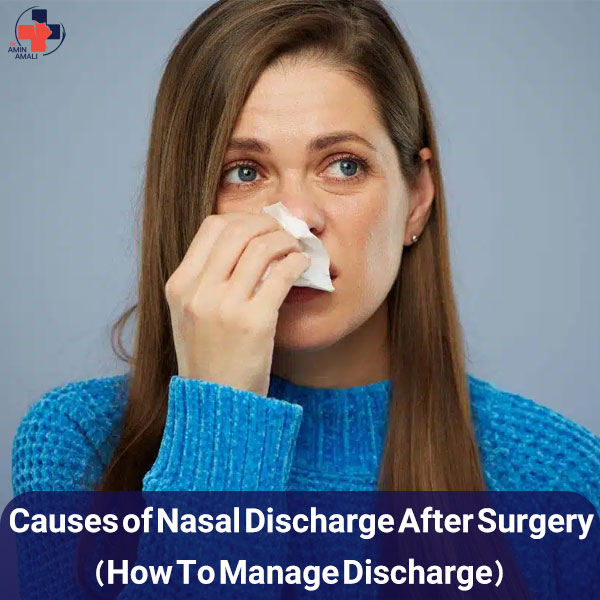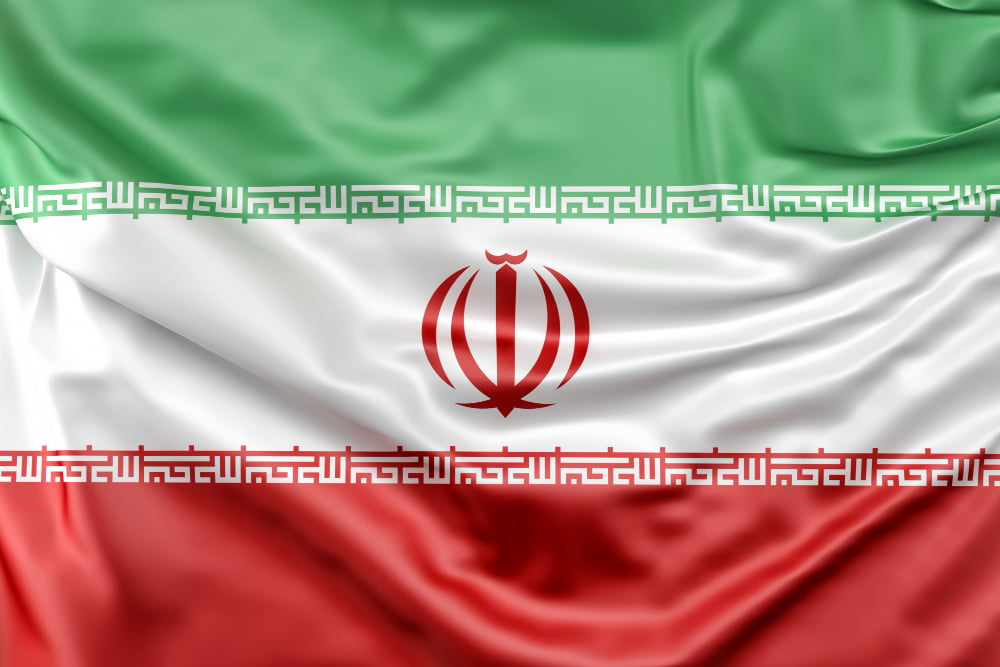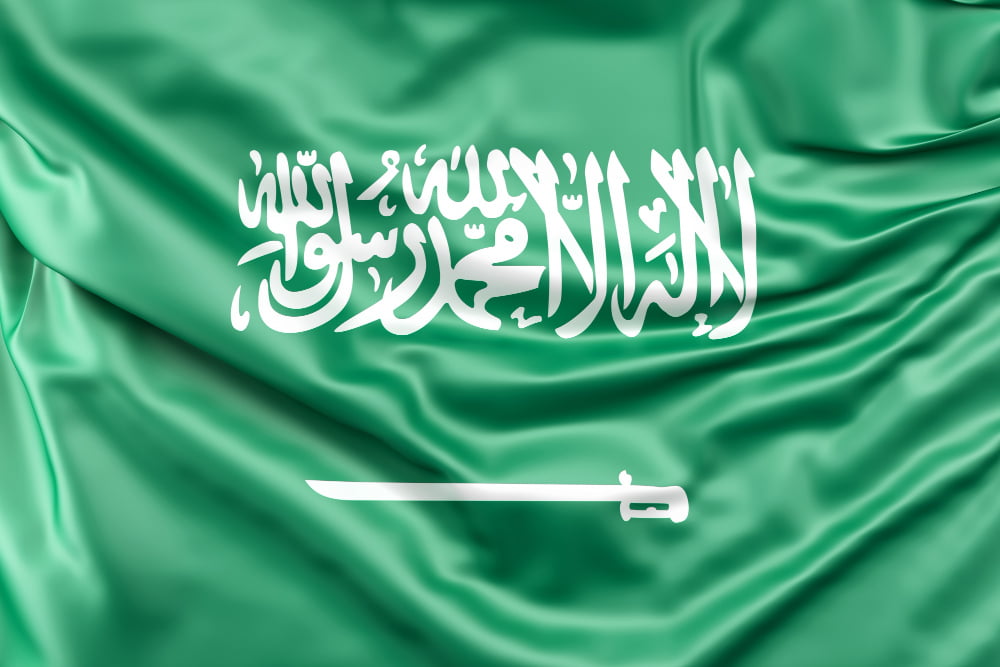After undergoing nose surgery, whether cosmetic or medical, experiencing nasal discharge can be unpleasant and concerning. However, there’s no need to worry! In most cases, this symptom is temporary and harmless, and it can be addressed with simple solutions. In this article, we will explore the causes, prevention methods, and treatments for nasal discharge after surgery, allowing you to navigate your recovery period with full awareness and ease.

What Causes Nasal Discharge After Surgery?
Surgery can lead to dryness and inflammation of the nasal mucosa, resulting in nasal discharge. This dryness can stem from several factors:
- Dry Air: The humidity in hospitals or at home may be low, contributing to increased dryness of the nasal mucosa.
- Mouth Breathing: Due to nasal obstruction from the surgery, individuals may be forced to breathe through their mouths, exacerbating mucosal dryness.
- Frequent Sneezing: Repeated sneezing can irritate the nasal passages and lead to discharge.
- Inflammation and Swelling: Inflammation and swelling from the surgery can cause irritation and nasal discharge.
- Bleeding: Blood may flow back into the nasal passages, leading to irritation and discharge after the surgery.
Which Medications Can Trigger Nasal Discharge After Surgery?
Some medications prescribed by the best rhinoplasty surgeon after nose surgery may have side effects, including nasal discharge. These medications can include:
- Pain Relievers: Certain pain relievers, such as ibuprofen or naproxen, can cause congestion and nasal discharge.
- Antihistamines: Antihistamines can increase dryness of the nasal mucosa, leading to nasal discharge.
Does Nasal Discharge After Surgery Cause Sneezing?
Sneezing is a natural response of the body to internal or external irritants affecting the nasal mucosa. When nasal discharge increases due to excess mucus, it can lead to more irritations within the nasal passages, potentially resulting in sneezing. Therefore, it can be said that nasal discharge may indirectly increase the likelihood of sneezing.
However, whether nasal discharge after surgery causes sneezing depends on the individual’s condition and sensitivity of their nasal mucosa. Generally, if nasal discharge leads to mucus buildup in the nose, it is likely to cause further irritation, triggering sneezing as a natural response.
Preventing Sneezing After Nose Surgery
Changing the Way, You Sneeze
One method to prevent sneezing after nose surgery is to alter your sneezing technique. Instead of sneezing through your nose, try to sneeze through your mouth. This minimizes pressure on the nose and helps prevent damage to the freshly repaired tissues.
Using Antihistamines
Many sneezes result from allergic reactions and sensitivities. Doctors may prescribe antihistamines or allergy medications to help manage allergy symptoms. Taking these medications correctly and on time can reduce nasal irritation and prevent sudden sneezing.
Avoiding Environmental Irritants
In the initial weeks following surgery, it’s best to avoid exposure to allergens such as dust, cigarette smoke, or strong fragrances as much as possible. These irritants can trigger nasal mucosa irritation, leading to sneezing and even nasal discharge. Using appropriate air filters in your home and bedroom can also help reduce allergens.
Using Humidifiers and Vaporizers
Nasal dryness after surgery can be a cause of sneezing. Utilizing humidifiers and vaporizers adds necessary moisture to the air, preventing dryness and irritation of the nasal mucosa. Additionally, staying adequately hydrated by drinking enough water helps keep the internal tissues moist.
Saline Nasal Rinses
Daily nasal rinsing with saline solutions can help prevent mucus buildup and nasal irritation. This method not only reduces unwanted sneezing but also promotes quicker healing and reduces swelling.
Why Doesn’t Nasal Discharge Stop After Surgery?
Several environmental factors can contribute to nasal irritation and increased nasal discharge, including:
- Smoke: Pollutant smoke can irritate the nasal passages, leading to increased discharge.
- Fragrances: Fragrance ingredients in perfumes, cleaning products, and other items can irritate the nasal mucosa, exacerbating post-operative nasal discharge.
- Sun Exposure: Sunlight can cause dryness and irritation inside the nose, worsening sneezing and discharge.
- Drinking Alcohol and Smoking: Alcohol and tobacco can irritate blood vessels, potentially causing bleeding and nasal discharge.
How to Control Nasal Discharge After Rhinoplasty
- Use Saline Nasal Spray: Saline spray helps keep the nasal passages moist and flush out mucus. This can reduce inflammation and irritation, as well as thin and facilitate easier drainage of discharge.
- Utilize Nasal Rinse Solutions: A nasal rinse solution is a saline solution you can use to wash out your nasal passages. This helps clear the nasal passages of mucus, dust, and pollutants.
- Keep Your Head Elevated: Sleeping with your head elevated using several pillows can help reduce swelling and nasal congestion.
- Apply Cold Compresses: Using cold compresses on the bridge of your nose and around your eyes can help decrease swelling and pain.
- Take Over-the-Counter Pain Relievers: Medications like ibuprofen or acetaminophen can help relieve pain and inflammation.
- Avoid Manipulating Your Nose: Touching or excessive sneezing can further irritate the nasal passages and increase bleeding.
- Use Humid Air: Using a humidifier or vaporizer in your home can help keep your nasal passages moist and reduce dryness and irritation.
- Avoid Smoking and Secondhand Smoke: Smoke can irritate the nasal passages and slow down the healing process.
- Refrain from Alcohol Consumption: Alcohol can dilate blood vessels and increase the likelihood of bleeding.
- Get Plenty of Rest: Allow your body enough time to heal. Adequate rest helps reduce inflammation and supports the healing process.












